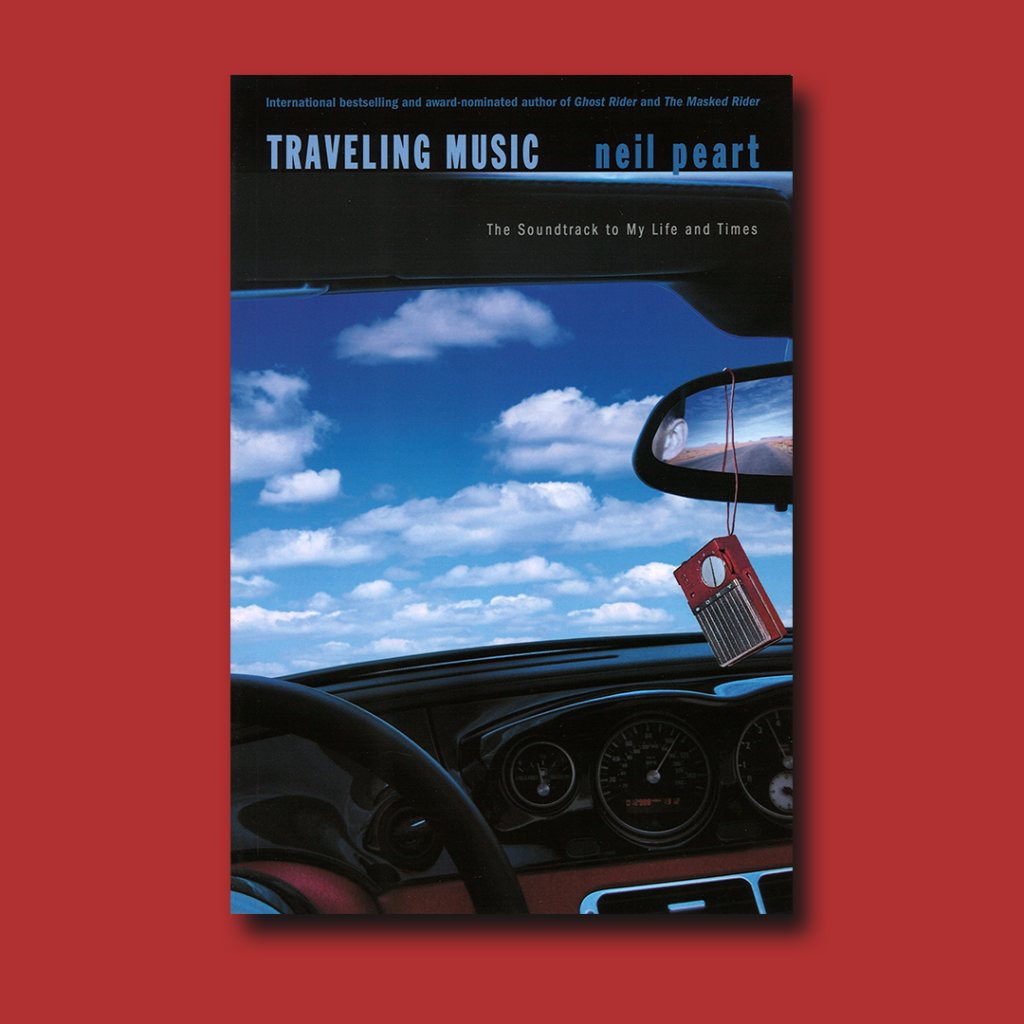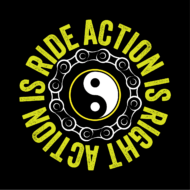Neil Peart, 2004

I am an unabashed Rush geek, but perhaps even more so, as a lapsed drummer and a lover of books and thought, a fully-formed Neil Peart geek – which sorts me into an even more obscure niche of weirdness. I’d read most of his books, but had missed a few and the Missus was nice enough to get me a couple this past Christmas – Travelling Music was one. The other was The Masked Rider – which I’ve read, but loaned my copy to a guy years ago and never got it back.
In 2003, Neil had some time to himself while his partner was away on a trip and decided to visit a national park a few days from LA in the American Southwest. Listening to the collection of his ‘ride or die’ CDs in the changer (never would have guessed him to be both a Sinatra AND Linkin Park fan) in the trunk of his car (holy crap, who here remembers THOSE days) it occurred to him if he maybe made some observations about that music it might make an interesting book.
Ostensibly it’s a travel book about music, but if you’re at all familiar with the Man, his books, his lyrics, or indeed his life, it should come as no surprise that it’s much more than that. At the very least, given his life-long penchant for reading it’s a trove of books and music to be eagerly highlighted by me for further investigation. Initially I started highlighting albums to later assemble into an Apple Music Playlist but alas, time has conspired to make that a bigger challenge than I’d thought as many titles aren’t available digitally on Apple Music – or hardly anywhere. I’m pretty sure that Neil would be happy it turned out that way. One has to carve away the stone to seek ‘em out.
Another aspect of the Man that endeared him to me was his passion for cycling – moving through the world “at people speed” as he once described it. Throughout his books are stories of cycling tours of various continents or between shows on tour. He would later switch to motorcycles, but the passion for travel, and documenting his observations surrounding his journeys remained. His observations of the outer world he’s traveling through are often interspersed with reflections and revelations of his inner world – many which we can all identify with. One thought that struck me features a Jack London quote I hadn’t heard before. In discussing risks in the activities one chooses to pursue in life – his partner cheekily called him a ‘daredevil’ – reflecting on two different people killed in bicycle accidents he noted:
“…no sense in playing it too carefully, at the cost of missing out on worthwhile experiences, opportunities, or simply fun. Like Jack London’s credo, ‘The proper function of man is to live, not to exist. I shall not waste my days in trying to prolong them. I shall use my time.’”
When looking back on those who’ve made a positive mark on his life – teachers/drum teachers, friends, grandmothers, mom and dad he posits,
“In a world so desparate for heroes that we have to invent them, buying and selling super-humans made from the common clay of actors, athletes, or artists, then turning on them when they betray us by being, as old Fred Nietzsche put it, “human, all too human,” maybe the role models we really need are found all around us, right in our own neighbourhoods. Not some remote model of perfection which exists only as a fantasy, frustratingly unattainable, but everyday people who actually show us, by example, a way to behave that we can see is good, and sometimes people who can show us what it is to be excellent.”
Never one to shy away from the big philosophical questions and quest for meaning, he tells the story of the time he and a pal discovered “the ultimate Meaning of Life”:
“In the fall of 1972, in our Colliers Wood flat, Brad and I took a well-planned, carefully orchestrated LSD trip. We locked ourselves into our flat on a Saturday night, filled the electric meter with coins, and settled back to listen to Moody Blues records, smoke cigarettes, and discuss the meaning of life.
Sometime during that timeless night, we came up with a phrase that made us smile, a phrase we continued to circle back to all that night, and we decided it was the ultimate Meaning of Life.
“You get up in the morning and you go to work”
It seems to me that phrase still goes a long way towards defining an existential modus operandi, and pretty much sums up the way I have lived my life, whether selling souvenirs on Carnaby Street, stocking farm equipment parts, playing drums on a relentless concert tour, writing lyrics, writing a book, grieving the loss of my family, or setting out on a long drive across the American Southwest. You get up in the morning and you go to work.”
Finding his way, it would seem Neil was just The Working Man after all.
Neil doesn’t have all the answers for sure, but by way of William H. Calvin’s book The Cerebral Symphony: Seashore Reflections on the Structure of Consciousness which he was reading on a cycling trip across West Africa he certainly introduced me to some interesting questions:
”…Calvin offered a poetic frame for many profound statements, but I was most grateful for the Three Primal Questions: 1/ ‘Where are we going?’ 2/ ‘When do we get there?’ and 3/ ‘Why do I have to sit in the middle?’”
Why are we here? Because we’re here. Roll the bones. Many thanks, Neil.
You don’t have to be a Rush fan at all to enjoy this book, Neil actually doesn’t talk all that much about “the guys at work” in this one – he’s done that plenty elsewhere. Any music fan – or fan of books and philosophy – will no doubt enjoy it as will anyone that likes a road trip accompanied by some good traveling music.
